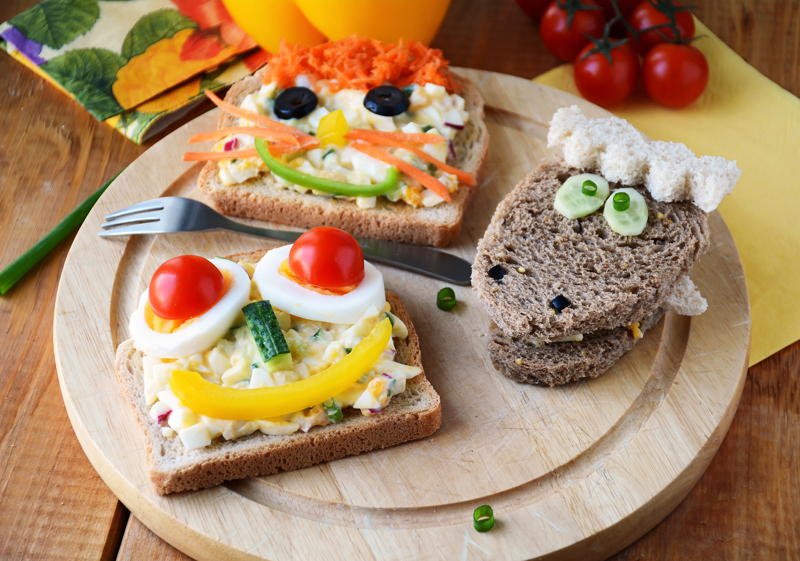Parents, including myself, often are tempted into bulldozing children into eating more and eating healthy. And when he/she refuses to give in to the fuss, we get frustrated and thereafter start a vicious circle of unhappy mealtimes, both for us and our children.
Children find often find eating to be a boring and non-essential thing-to-do. With their levels of energy and curiosity they are not interested in sitting in one place to eat some supposedly nutritious food. Here are a few suggestions to make mealtimes a peaceful affair:
- Make it fun, not a chore: When parents fret over children, they unwittingly pass on their anxiety to children. Consequence? A teary-eyed, annoyed child and a red-faced parent nearing nervous breakdown. Make mealtimes a happy occasion. Overlook the mess on the floor and praise your child for trying a new food or finishing his/her meal.

- Don’t push your luck: If your child has agreed to try a mouthful of a new food or finish more than half of the food on the plate, find contentment in that. You can gradually ask him/her to eat more of that broccoli or liver, but don’t expect a polished, shiny plate at the end.
- Ignore: Children love attention and when they figure out they can get it by fussing over food, rest assured they will use that card all the time. So ignore any fuss over the food. And do not call them fussy eaters. It is a self-fulfilling prophecy.
- Get creative: Don’t tell your children how nutritious the food on the plate is. They don’t really care. Make the food visually appealing and give it an exciting name. A fishing boat made out of a sandwich and veggies with the title Crab Hunter is more likely to pique your child’s interest rather than a boring tomato sandwich called tomato sandwich.
- No distractions: TV does not allow us to respect and appreciate food. So turn off all gadgets to focus on food and on each other during mealtimes. Not only will this improve eating habits but also allow for family bonding.
- Let them be: Sometimes, they are just not hungry. Children’s appetites fluctuate according to their growth cycle. Or they are consuming too many snacks or liquids between meals. Give them a chance to be hungry. Often, they just don’t like the food. Try something else next time.
- Keep trying: If he/she has refused to try the sweet potato once. Don’t lose hope. Research shows that children are likely to try a new food after being offered at least eight times. Create different textures and versions of the same food.
- Invite some adventurous eaters: Children imitate adults and other children alike. The possibility of imitating another child who eats broccoli is higher. So have some playdates and introduce some new foods. It’s sneaky but it works.
- Dump the junk: You can’t hide a packet of chips, no matter how hard you try. So keep the junk out of your house and avoid a power struggle over food. When your child gets hungry, he/she will have only the healthy options. No temptation, no battles.

- The sweet bribe: When you tell your child he/she can have the chocolate cake only when the food is finished, it suggests to them their food is unexciting and the sweets are a reward for going through the tasteless meal. This reinforces the negative perception of their food. Unfortunately, it also shows how desperate you are for them to eat.
- A labour of love: Often we slave in the kitchen and prepare some heavenly delicacy for our fussy eaters. After hours of work when they reject it, frustration is inevitable. So don’t spend too much time on preparing a meal for your fussy eater. Keep it simple and avoid the frustration and drama. You’ll be surprised how easily a simple, sautéed broccoli can be a hit.
Research says that most children, despite all the fuss, meet their recommended dietary intake. So keep your calm and your expectations real, and with some consistent and ingenious efforts your child’s eating habits are likely to improve.







